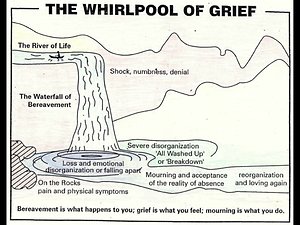Are you and your partner finding that fertility challenges are putting strain on your relationship? Perhaps you’ve noticed changes in how you communicate, or you’re experiencing moments of disconnection where you once felt close. As a counsellor in Beaconsfield, I’ve worked with many couples navigating the complex emotional terrain of fertility difficulties, and I understand how deeply these challenges can impact even the strongest relationships.
Fertility challenges create a unique type of stress that affects couples in profound ways. What began as a shared hope for creating a family together can transform into a rollercoaster of medical appointments, difficult decisions, financial pressures, and emotional highs and lows. It’s no wonder that many couples find this journey tests their relationship in unexpected ways.
One of the most common challenges couples face is different coping styles. You might find that while one of you wants to talk through every emotion and possibility, the other prefers to process feelings privately or focus on practical solutions. Neither approach is wrong – they simply reflect different ways of managing stress and uncertainty. However, without understanding and compassion, these differences can lead to feelings of isolation or resentment.
The timing and pacing of fertility treatments can also create tension. One partner might be ready to pursue more intensive treatments, while the other needs more time to consider options. Or perhaps you have different perspectives on when to take breaks from treatment or when to explore alternative paths to parenthood. These decisions are deeply personal and can be difficult to navigate when you’re both under stress.
Intimacy often suffers during fertility challenges as well. Sex that was once spontaneous and connecting may begin to feel scheduled and pressured when timed around ovulation. The medical aspects of fertility treatment can leave you feeling disconnected from your body and from each other, making it difficult to maintain physical and emotional closeness.
So, how can you nurture your relationship through this challenging time?
First, acknowledge that this is hard for both of you, even if your experiences differ. Make space for each other’s feelings without judgment, recognising that emotions might change from day to day. Try to listen with compassion, even when your partner’s perspective differs from your own.
Maintain connection through small, intentional moments. This might be a daily check-in, a weekly date night, or simply holding hands while watching a film. Find ways to be close that aren’t centred around fertility, reminding yourselves of the many dimensions of your relationship.
Be mindful of communication patterns. When tensions run high, it’s easy to fall into blame or criticism. Instead, use “I” statements to express your feelings and needs, and take breaks from difficult conversations when emotions become overwhelming.
Seek support, both individually and as a couple. This might include joining a support group, connecting with others who understand your journey, or working with a counsellor who specialises in fertility issues. Having additional sources of support can reduce the pressure on your relationship to meet all of each other’s emotional needs.
Remember that grief and hope can coexist on this journey. You can acknowledge the losses and disappointments you’ve experienced while still maintaining hope for the future, whatever that might hold.
If you’re finding that fertility challenges are putting strain on your relationship, I’m here to help. As a counsellor in Beaconsfield specialising in relationship support and fertility issues, I provide a safe, non-judgmental space where you can explore your feelings, improve communication, and strengthen your connection during this difficult time. Together, we can work on strategies to support each other through fertility challenges while preserving the bond that brought you together.
Don’t hesitate to reach out for an initial consultation to discuss how counselling might benefit your relationship. This journey is challenging, but with the right support, you can navigate it together, growing stronger as a couple along the way.









